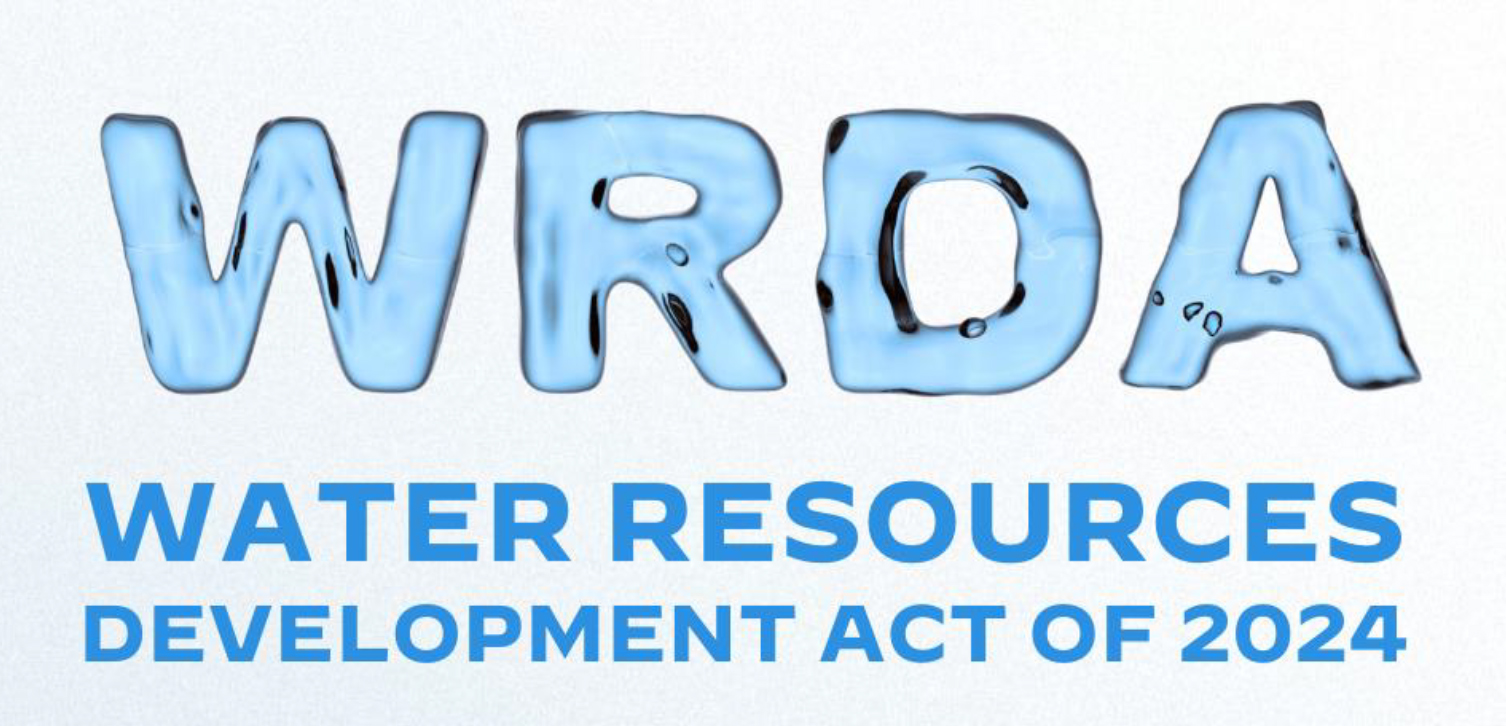Washington, D.C.—On January 4, President Joe Biden signed into law the broadly popular Water Resources Development Act (WRDA) of 2024 that boosts the federal cost-share for inland waterways projects to 75 percent and authorizes more than 200 feasibility studies and 22 new or modified construction projects by the U.S. Army Corps of Engineers.
Named in honor of former U.S. Sen. Thomas Carper (D-Del.), S. 4367 also reauthorized the Economic Development Administration for the first time in 20 years. Both Carper, who chaired the Senate Environment and Public Works Committee until he retired earlier this month, and Sen. Shelley Moore Capito (R-W.Va.), who now chairs the panel in the new Congress, singled out the EDA language, which also modernizes the agency.
“This bill ensures the Army Corps of Engineers can continue to address the diverse water needs of our nation and work to make our communities more resilient in the face of extreme weather,” Carper said.
Capito said she was “thrilled” the critical legislation is now law.
“Through this bill, we are putting forward solutions and resources that strengthen the U.S. Army Corps of Engineers’ Civil Works Program and address important water resources studies and projects in our states,” she said.
Responding to Biden’s signing the bill into law, The American Waterways Operators (AWO) cited the language that changes the cost-share for inland waterways construction and major rehabilitation projects from 65 percent general revenues and 35 percent Inland Waterways Trust Fund to a 75/25 split.
AWO cited other provisions it said would provide improvements to the Inland Waterways Regional Dredge Pilot Program to enhance navigation reliability and freight capacity and allow the Corps to proceed with plans for remote lock operations only if security and stakeholder engagement conditions are met.
Key supporters in Congress say the measure also compels better use of existing authorities provided in prior WRDAs by directing the Corps to execute a plan to fully implement those and create a team to share information across Corps districts, expedite completion of reports required in previous WRDAs and modernize the Corps’ ability to pay to help certain communities and clarifying the Corps’ federal interest determinations authority to advance feasibility studies.
They also cite provisions in the bipartisan legislation that boosts the maximum amount the Corps may contribute to a project and modernize the 3x3x3 policy for feasibility studies to account for more complex water resources needs.




